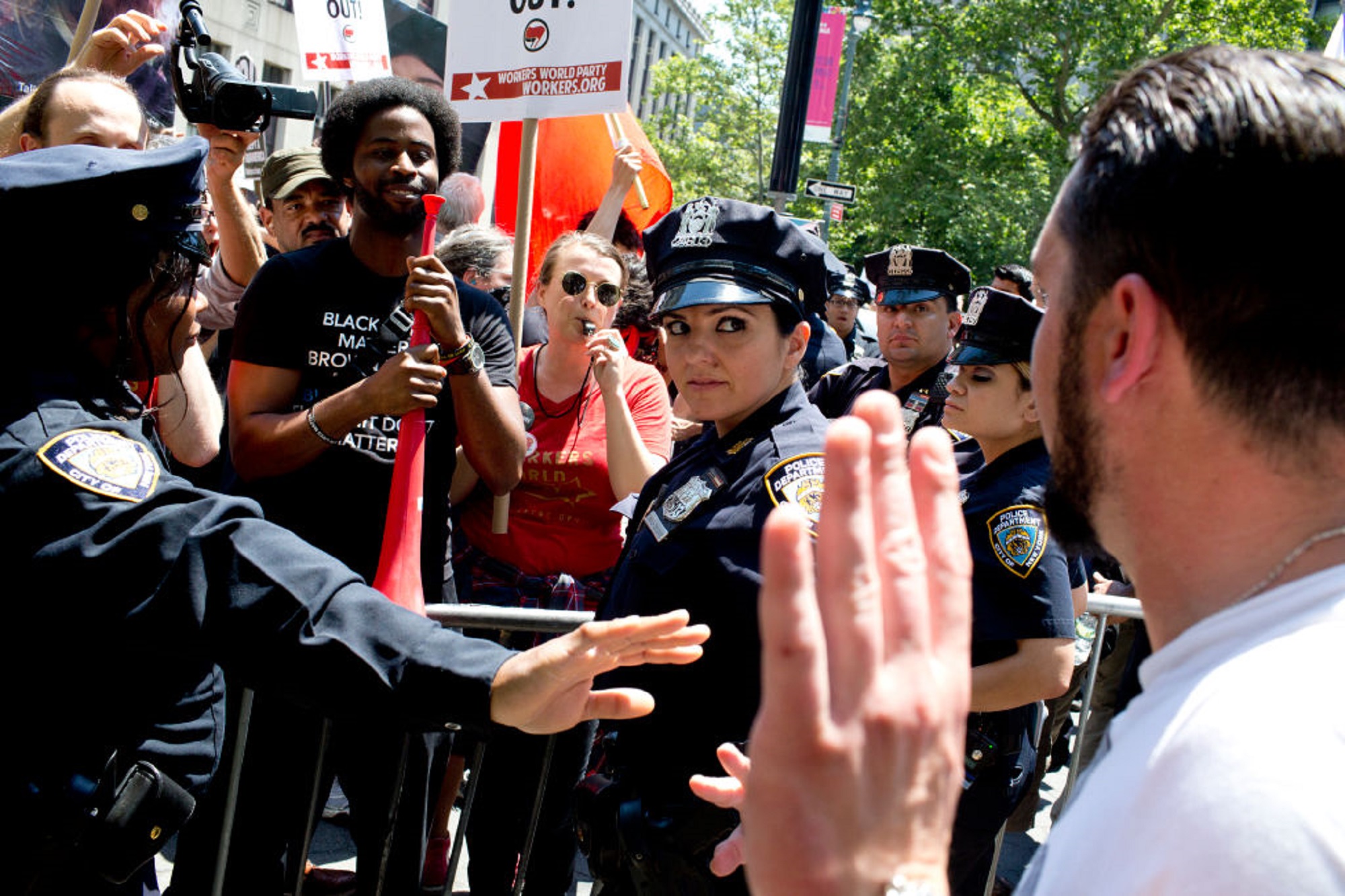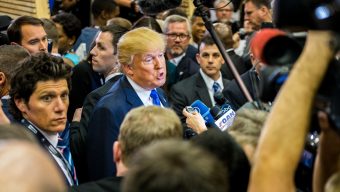The 2021 American school year started amidst a battle regarding critical race theory. A culture war over a theory is definitely odd, but the right-wing media and political establishment have managed to instill fear in their followers in regards to what they see as a radical set of ideas that labels all white people as oppressors and blames them for racism while classifying all black people as victims. The right wing in the United States claims that critical race theory is being used to indoctrinate citizens, from school children to federal agency workers. Such push back against an academic legal framework has been puzzling those scholars who have spent years working on the somewhat obscure theory that deals with institutional racism. Moreover, it matters a great deal because there are real life implications: school boards and states across the United States have used the controversy to actually ban teachings about racism.
So, what exactly is critical race theory? It’s nothing new. In fact, the subject goes back to the 1970s, when legal scholars questioned why racial disparities persisted in the United States despite decades of civil rights reforms. Later on, a workshop at a retreat organized by UCLA law professor Kimberlé Williams Crenshaw titled “New Developments in Critical Race Theory” solidified critical race theory as an academic field. When a journalist with The New York Times asked for a definition of this theory, Williams Crenshaw noted that “It’s only prompted interest now that the conservative right wing has claimed it as a subversive set of ideas,” adding that it doesn’t help that news coverage is making it into a bigger issue.
Critical race theory stems from a long line of political and social science that casts an analytical eye on the institutions and systems that compose democracy. Mari Matsuda, a law professor at the University of Hawaii explains, “The problem is not bad people. The problem is a system that reproduces bad outcomes. It is both humane and inclusive to say, ‘We have done things that have hurt all of us, and we need to find a way out.’”
In other words, critical race theorists blame entrenched institutions for the pervasiveness and persistence of racism in American society. According to the theory, despite reforms to civil rights, racial hierarchies continue to exist because these institutions were created by and for white men and once institutions are set up, they are extremely difficult to change. Feminists make a similar argument, that the institutions that make up our democracy were not set up to be inclusive to women.
This is by no means exclusive to the United States, just look at the founders of many a current governing system in the world and you’ll most likely see who continues to dominate that system. Not only are these institutions ensconced by written laws but also by unwritten, often cultural laws, ideas, and mindsets that are the toughest parts of any society to change.
As someone who has researched and taught my fair share of theory, it is surprising to see one enter the general lexicon. Academic theory is not exactly something that tends to excite anyone other than academics. They are practically impossible to turn into the kind of soundbites that could enliven an entire base of voters. Rather, they are shortcuts used to explain political and social phenomena and are, therefore, often flawed. There will inevitably be evidence that both supports and refutes them – it’s messy and one of my most common refrains in the classroom is: this is social science; we don’t prove anything.
Nonetheless, the term critical race has been lodged into the conservative consciousness, and unfortunately defined in a way that that has little to do with the academic scholarship that underpins it. In the aftermath of George Floyd’s killing at the hands of a white police officer, the Black Lives Matter movement sparked a national conversation about racism that made some people uncomfortable. On September 1, 2020, journalist and Manhattan Institute senior fellow Christopher Rufo discussed critical race theory on Fox News, claiming that it sowed racial division as it was used for mandated anti-bias training in federal agencies. “Conservatives need to wake up,” he insisted, “This is an existential threat to the United States.”
Censoring the teaching of history in schools is a serious blow to American democratic values that also denies children of their right to a vigorous and truthful education.
And the American conservatives did awaken. The timing could not have been better in terms of conservative politics, being just a couple months out from the 2020 presidential election with President Trump down in the polls. Just three days after Rufo’s Fox News interview, the Trump administration issued the a rather inflammatory executive order: “All agencies are directed to begin to identify all contracts or other agency spending related to any training on ‘critical race theory,’ ‘white privilege,’ or any other training or propaganda effort that teaches or suggests either (1) that the United States is an inherently racist or evil country or (2) that any race or ethnicity is inherently racist or evil.”
A few weeks later, Trump gave a speech announcing the creating of a “national commission to support patriotic education,” called the 1776 Commission. He denounced critical race theory as “toxic propaganda” and also took aim at The New York Times 1619 Project that attempted to reframe American history by focusing “consequences of slavery and the contributions of black Americans at the very center of the story we tell ourselves about who we are as a country.”
While President Biden easily overturned these directives, he cannot dislodge this issue from the hearts and minds of conservatives, nor can he undo the deep disconnect between what they think critical race theory is and what it actually is. So, it comes as little surprise that the cultural combat over critical race theory carries on at the local and state level, where laws have gone into effect that limit teaching about America’s history in regards to slavery on up to the country’s current struggles with racism.
So far, the states of Idaho, Oklahoma, Tennessee, Texas, Iowa, New Hampshire, Arizona, and South Carolina have actually passed legislation – which, by the way conflicts with state-level curriculum standards – that bans any teaching that positions the U.S. as an inherently racist country or discusses conscious and unconscious bias, privilege, discrimination, and oppression.
In June, the podcast What a Day included two teachers from states that have banned such discussions, one from Texas and the other North Carolina. Neither teacher had even heard of critical race theory before it had become a talking point the previous year. Both felt that their job is to teach the truth and stick to state curriculum. And while they didn’t feel that these vague new laws would, in reality, force them to change their teachings about the history of the United States and its current state of racism, they were concerned that some conservative-minded parents might be empowered by the new legislation to take up the issue at the schools or district level.
Kmele Foster, David French, Jason Stanley, and Thomas Chatterton Williams, are what The New York Times called a “cross partisan group of thinkers” who wrote an opinion piece titled, “We Disagree on a Lot of Things. Except the Danger of Anti-Critical Race Theory Laws.” They conclude that “There will always be disagreement about any nation’s history. The United States is no exception. If history is to judge the United States as exceptional, it is because we welcome such contestation in our public spaces as part of our unfolding national ethos. It is a violation of this commonly shared vision of America as a nation of free, vigorous and open debate to resort to the apparatus of the government to shut it down.”
Censoring the teaching of history in schools is a serious blow to American democratic values that also denies children of their right to a vigorous and truthful education. Sociologist and Brookings fellow Victor Ray tweeted the ultimate argument against these bans: “making laws outlawing critical race theory confirms the point that racism is embedded in the law.” Then there is Biden’s speech in Tulsa, Oklahoma, commemorating the 100th anniversary of the race massacre, “We can’t just choose to learn what we want to know and not what we should know.”
It’s impossible to have a serious discussion of the issue when one side has been whipped into a frenzy based on a twisted version of critical race theory and its role in education about race and American history. In the end, it seems to be a messaging win for Rufo, Trump, and right-wing media. In March, Rufo claimed this victory in a tweet: “We have successfully frozen their brand — “critical race theory” — into the public conversation and are steadily driving up negative perceptions. We will eventually turn it toxic, as we put all of the various cultural insanities under that brand category.”
Despite Rufo’s chest thumping, a Reuters/Ipsos poll conducted in mid-July showed that only 43% of Americans had even heard of the term critical race theory and “a majority of Americans support teaching high school students about the impacts of slavery (78%) and racism (73%) in the United States.”
All countries have painful and uncomfortable truths embedded in their histories, such as the Holocaust in Germany or the colonial past of Spain and other European countries. No matter who we are, there is terrible history to be told and that telling is fraught with controversy, misunderstandings, and hurt feelings. We all need to get better at seeing these historical issues at the macro level rather than considering them an assault on us as individuals living in today’s modern world. There is much to gain from facing our countries’ ugly pasts – and in doing so squarely, by recognizing the wrongs and learning from them. In this way, we can strengthen our democracies and, more importantly, deepen our connection with the rest of the world by building credibility and trust.
A version of this article ran in Spanish with esglobal.
© IE Insights.








